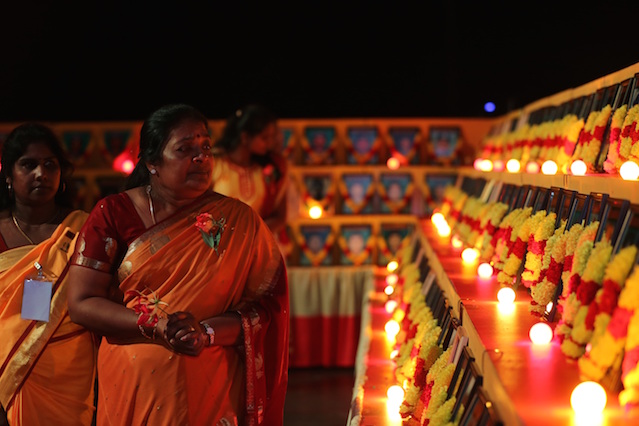The Significance Of Maaveerar Naal

By Pitasanna Shanmugathas –November 28, 2016
I look at Maaveerar Naal with an immense sense of sadness for the thousands of lives that were needlessly killed and sacrificed, all for an unattainable and counterproductive goal of a separate state. If only the Sri Lankan people had listened to the peaceful voices of dissent, throughout Sri Lanka’s independent history, calling for pluralistic unity—we as a people would undoubtedly be in a better place today.
There was a peaceful voice of dissent coming from a man named Senator Murugeysen Tiruchelvam, who throughout the 1950s, 60s, and 70s, strongly voiced objection to dividing the country and believed in solving the ethnic tensions under a united Sri Lanka. November 23rd marked the 40th death anniversary of Senator Murugeysen Tiruchelvam. Senator Murugeysen Tiruchelvam, throughout his career, was a strong proponent of federalism. Tiruchelvam was opposed to the Vaddukoddai resolution, an overwhelmingly mandate calling for a separate state of Tamil Eelam in the North and East of Sri Lanka, and strongly advised SJV Chelvanayakam against it.
Senator Tiruchelvam perhaps foresaw that Tamils plunging into a separatist war will result in needless bloodshed, further educational and economic impoverishment of the Tamil people, all for a goal of separatism which was inevitably unattainable. However, Senator Murugeysen, much like his son Neelan Tiruchelvam, was disliked and deeply criticized by fellow Tamil politicians for much of his political career.

Tiruchelvam, while serving as a Senator in Parliament, poignantly stated, “We do not want to divide this country. In no part of the world is it accepted as a political philosophy that a federal form of government divides a country.” Senator Tiruchelvam strongly advocated for the Sinhalese parties to stop fighting amongst each other for narrow political gains and instead he advocated that all parties should come together and unite on behalf of the interests of all the people in Sri Lanka, “We of the Federal Party will be attacked because ‘we have betrayed the Tamils.’ The U.N.P. will be attacked because it has ‘betrayed the Sinhalese.’ But there comes a time in the history of a nation, in the history of a people, when certain circumstances have arisen, when it is all the more necessary for all people to come together to meet such situations and agree on a common programme.” At the time of Tiruchelvam’s death in 1976, his proposals and pleas for ethnic reconciliation were belittled and ridiculed by the political parties of Sri Lanka. Sri Lanka, for decades, would pay a deadly price for its political inaction in peacefully resolving the ethnic tensions.

